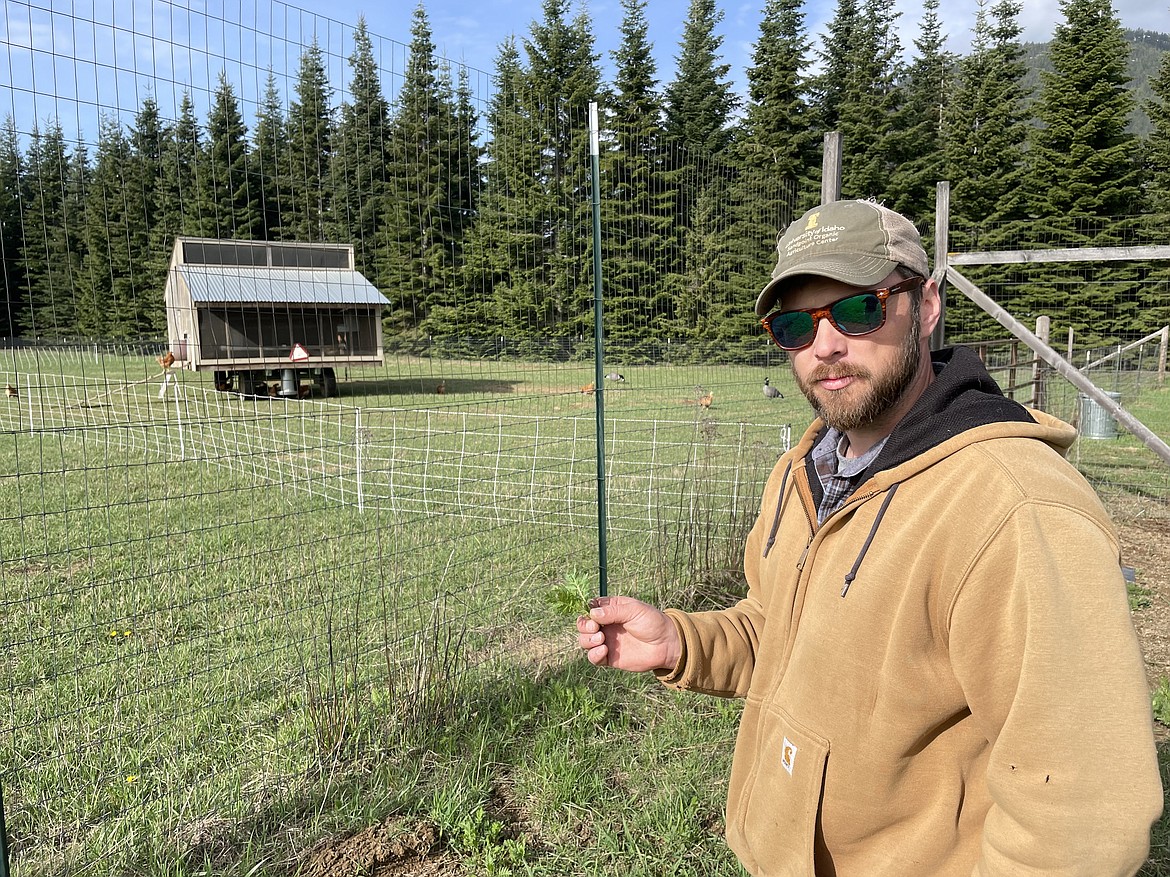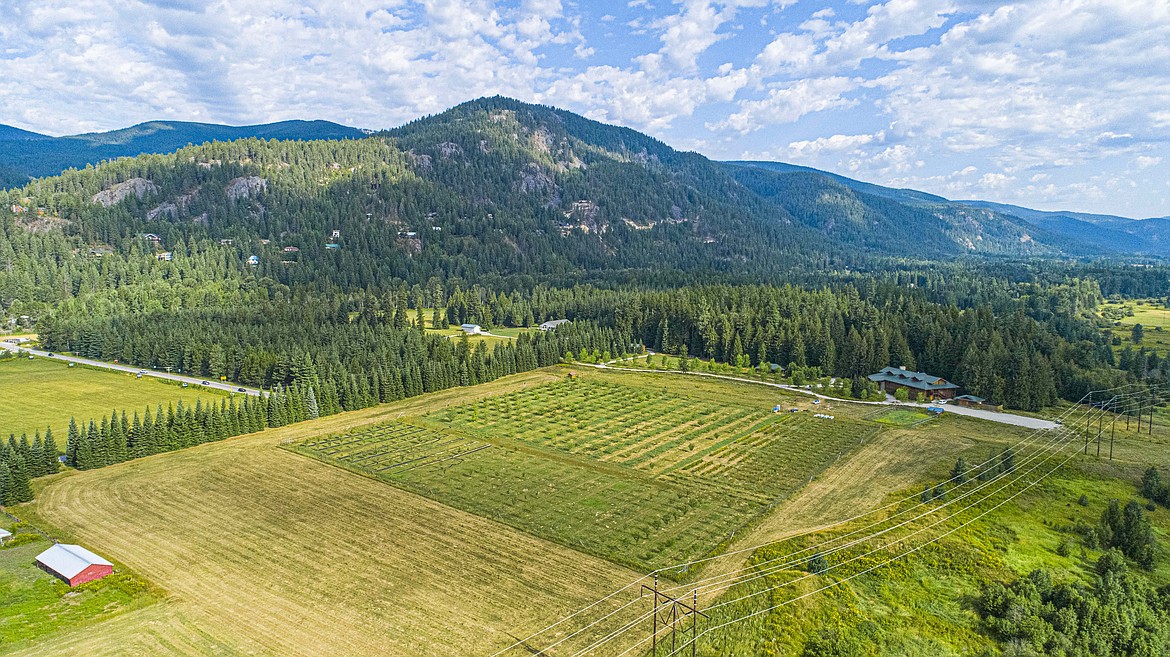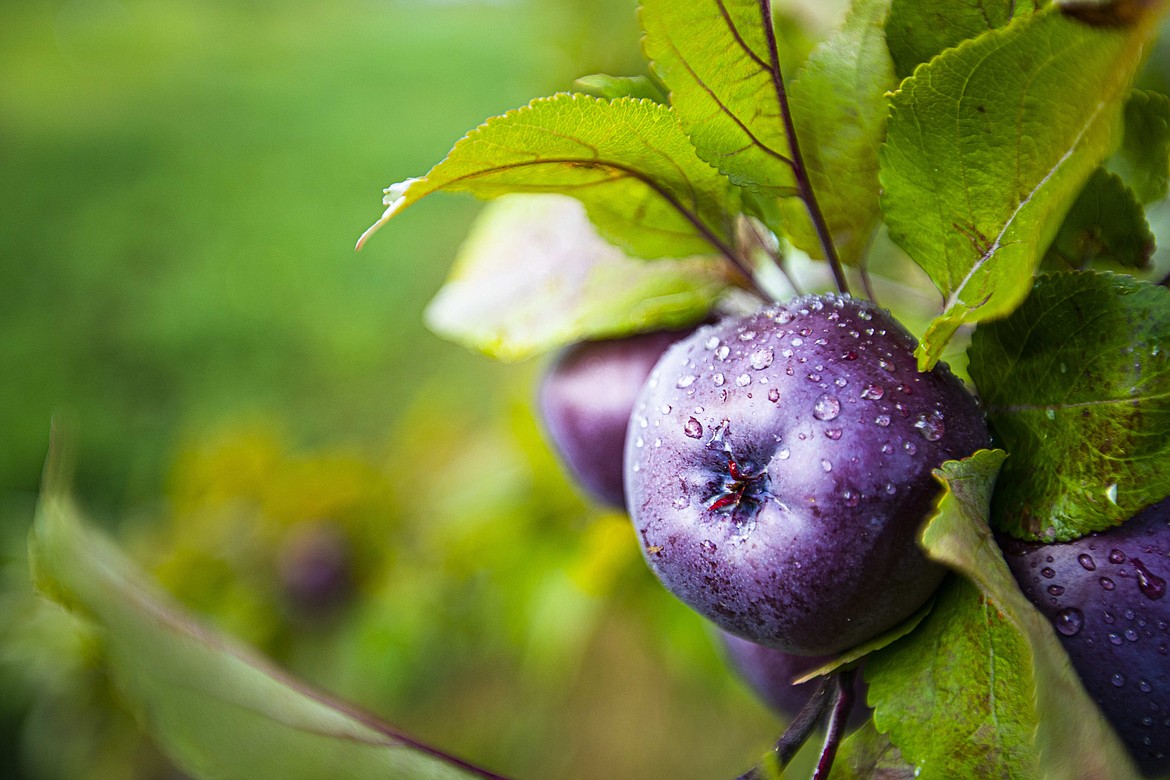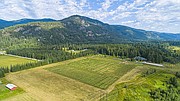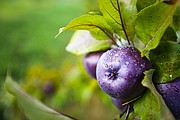UI apple conference blossoming under virtual format
When the University of Idaho’s Sandpoint Organic Agriculture Center switched its Heritage Orchard Conference to a virtual format, it was simply to keep it running amid the COVID-19 pandemic.
Under the virtual format, however, the regional conference has grown into an international affair for apple lovers and researchers, drawing 20 times the number of participants and some of the industry’s top experts to serve as speakers.
Not to tamper with success, UI officials said the center will once again host its popular conference online, with webinars scheduled for the third Wednesday of each month from October through April. The talks will be presented via Zoom from 10 a.m. to noon PST. Register in advance online to attend one or more sessions. There is no admission to participate.
“It seems like there are a lot of different regional groups that focus on heritage apples. We wanted to bring those groups together,” said Kyle Nagy, the center’s superintendent and orchard operations manager.
The conference started in 2019 as a one-day event drawing about 75 people from throughout the Pacific Northwest to Sandpoint. During the past two years, as a webinar series, it’s had more than 1,500 participants from 27 countries.
The first webinar, scheduled for Oct. 19, will feature John Bunker, who is with the Maine Heritage Orchard and authored the book “Apples and the Art of Detection.”
“He’s kind of a heritage apple legend,” Nagy said. “He’s found some of these lost apple varieties and he’s one of the few people who I know of who is good at identifying apples based on physical characteristics. That’s definitely a dying art. Most of the identification today is done with genetic analysis.”
Another favorite speaker of Nagy’s, Gennaro Fazio with USDA’s Agricultural Research Service in Geneva, New York, will present on Nov. 16 about novel apple rootstock technologies.
“He has been working on apple rootstocks for decades,” Nagy said. “Most people think the rootstock is mostly for tree size, but there’s a lot that rootstock can influence – how early a tree bears fruit, disease resistance, etc.”
The Sandpoint facility is the only USDA Certified Organic program operated by U of I’s College of Agricultural and Life Sciences. It includes a fenced 8-acre orchard, with a few half-acre plots reserved for other organic research, including projects evaluating soil health in organic production systems and pest control in huckleberries.
About 95% of the apple trees at the orchard are heritage varieties – producing apples that can’t be found at a store and, in fact, most people have never heard of. The majority of the varieties date back to the 1700s and 1800s. Most of the varieties were selected for cider production, drying or for use as a sweetener. The oldest variety, Summer Rambo, is a French apple originating in 1535.
A past speaker at the conference, Dan Bussey, author of a seven-volume set of books called “The Illustrated History of Apples in the United States and Canada,” documented more than 16,000 named varieties of apples.
“A lot of it is just spreading awareness. We get people who know a lot about heritage apples and we get people who just like apples and want to learn more,” Nagy said. “Most people don’t know there are so many varieties of apples out there.”
For those who wish to tour the center in person and taste fruit found in few other places, Nagy has also scheduled a few in-person events. The center will host an apple tasting that will be free for the public to attend on the afternoon of Oct. 22. The center had about 250 people attend its first apple tasting event in 2019. Participants tasted 35 apple varieties and scored them for flavor and texture. Based on the results Nagy released a list of the top 10 apples. The apple tasting was suspended due to COVID-19 and will be making its return this harvest season.
Harvest has been delayed by a couple of weeks this season due to a cool spring, and Nagy and his staff are eager to get the crop in before the arrival of the first hard frost.
On Oct. 29, Nagy will be at the Moscow Farmers Market offering free samples of about 10 apple varieties.
On. Nov. 4, the center will host its first Selkirk-Pend Oreille Food Summit. The event is scheduled for 9 a.m. to 4 p.m., followed by a social period from 4-6 p.m. The theme will be “Growing Connections from Farm to Table,” and there will be food tastings and conversations featuring locally grown food. The center will serve cider pressed from individual apple varieties for comparison. A catered lunch will also be served.
“What we’re trying to do is really connect our community with the local food system,” Nagy said. “There are going to be presentations from local producers, farmers and ranchers. We’ll also have restaurants and businesses that utilize local products so we’re not putting food miles on produce grown locally.”
Information: uidaho.edu

